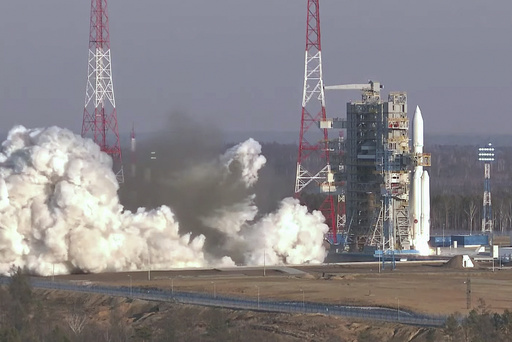MOSCOW (AP) — Russia on Thursday successfully test-launched a new heavy-lift rocket from its Far Eastern space complex, a lift-off that comes after two aborted attempts earlier this week.
The first attempt to launch the Angara-A5 rocket from the Vostochny spaceport on Tuesday was canceled about two minutes before the scheduled liftoff due to a failure of the pressurization system of the oxidizer tank in the central block of the rocket.
The second attempted launch Wednesday was also aborted by the automatic safety system, which registered a flaw in the engine start control mechanism, said Yuri Borisov, head of Russia’s state-controlled space corporation Roscosmos. He added that the failure was most likely rooted in a programming error.
Thursday’s launch is the fourth for the Angara-A5, a heavy-lift version of the new Angara family of rockets that has been developed to replace the Soviet-designed Proton rockets.
The previous three launches were carried out from the Plesetsk launchpad in northwestern Russia.
After the 1991 breakup of the Soviet Union, Russia leased the Baikonur Cosmodrome from Kazakhstan and continued to use it for most of its space launches. The agreement with Kazakhstan allows Russia to keep leasing Baikonur for $115 million a year through 2050.
While Roscosmos has continued to rely on Baikonur, Russian authorities have developed Vostochny as the facility of choice for Angara launches. The construction of the new spaceport has dragged on for longer than planned and it has seen only limited use so far.
The development of the Angara-A-5, which is set to be the main launch vehicle for Russia’s prospective lunar research program, has also faced repeated delays and dragged on years behind schedule.
Like the Soviet-designed Proton it’s set to replace, the new rocket is intended to launch intelligence and communication satellites to geostationary orbits.
This website uses cookies so that we can provide you with the best user experience possible. Cookie information is stored in your browser and performs functions such as recognising you when you return to our website and helping our team to understand which sections of the website you find most interesting and useful.
